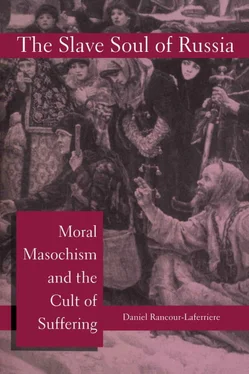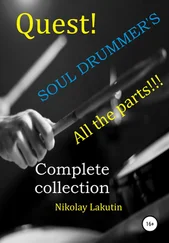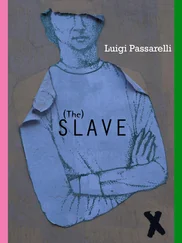Maksimov, S. V. 1909. Sobranie sochinenii . Saint Petersburg: Prosveshchenie, 20 vols.
Mamaladze, Irma. 1985. “Posledniaia privilegiia.” Literaturnaia gazeta , no. 4, 23 January, p. 11.
Mamonova, Tatyana. 1989. Russian Women’s Studies: Essays on Sexism in Soviet Culture . New York: Pergamon.
Markov, Vladimir, and Merrill Sparks, eds. 1967. Modern Russian Poetry . Indianapolis: Bobbs-Merrill.
Marshall, Bonnie. 1991. “A Commentary on Francine du Plessix Gray’s ‘Reflections (Soviet Women).’” Women East-West , January, pp. 6–7.
Martin, Dale B. 1990. Slavery as Salvation: The Metaphor of Slavery in Pauline Christianity . New Haven: Yale University Press.
Martynova, Antonina. 1978. “Life in the Pre-Revolutionary Village as Reflected in Popular Lullabies.” The Family in Imperial Russia . Edited by D. Ransel. Urbana: University of Illinois Press, 171–85.
Masaryk, Thomas Garrigue. 1955–67 (1912). The Spirit of Russia: Studies in History, Literature and Philosophy . Translated by R. Bass, E. Paul, and C. Paul. London: George Allen and Unwin, 3 vols.
Masson, Charles. 1800. Secret Memoirs of the Court of Petersburg . London: Longman and Rees.
Matorin, N. 1931. Zhenskoe bozhestvo v pravoslavnom kul’te: piatnitsa—bo-goroditsa . Moscow: Moskovskii rabochii.
McDevitt, John B. 1983. “The Emergence of Hostile Aggression and Its Defensive and Adaptive Modifications during the Separation-Individuation Process.” Journal of the American Psychoanalytic Association (supplement) 31, 273–300.
Mead, Margaret. 1951. Soviet Attitudes toward Authority . New York: Rand/McGraw Hill.
———. 1954. “The Swaddling Hypothesis: Its Reception.” American Anthropologist 56, 395–409.
Medvedev, Feliks. 1992. Posle Rossii . Moscow: Izdatel’stvo Respublika.
Medvedev, Zhores A. 1987. Soviet Agriculture . New York: W. W. Norton.
Meehan-Waters, Brenda. 1991. “The Authority of Holiness: Women Ascetics and Spiritual Elders in Nineteenth-Century Russia.” Church, Nation and State in Russia and Ukraine . Edited by G. Hosking. London: Macmillan, 38–51.
Mel’chuk, Igor’, and Aleksandr Zholkovskii. 1984. Tolkovo-kombinatornyi slovar’ sovremennogo russkogo iazyka . Vienna: Wiener Slawistischer Almanach, Sonderband 14.
Meletinskii, E. M. 1958. Geroi volshebnoi skazki: proiskhozhdenie obraza . Moscow: Izdatel’stvo vostochnoi literatury.
Meletinskij, E. M. 1975 (1958). “The ‘Low’ Hero of the Fairy Tale.” The Study of Russian Folklore . Edited by F. Oinas and S. Soudakoff. The Hague: Mouton, 235–57.
Mel’gunov, S. P. 1919. Iz istorii religiozno-obshchestvennykh dvizhenii v Rossii XIX v . Moscow: Zadruga.
Menaker, Esther. 1979. Masochism and the Emergent Ego . New York: Human Sciences Press.
Men’, Aleksandr. 1991. Syn chelovecheskii , 4th ed. Moscow: IPTs “Vita.”
Merezhkovskii, Dmitrii. 1914. Polnoe sobranie sochinenii . Moscow: I. D. Sytin, 24 vols.
Meyer, Alfred G. 1977. “Marxism and the Women’s Movement.” Women in Russia . Edited by D. Atkinson, A. Dallin, and G. Warshofsky Lapidus. Stanford: Stanford University Press, 85–112.
Meyers, Helen. 1988. “A Consideration of Treatment Techniques in Relation to the Functions of Masochism.” Masochism: Current Psychoanalytic Perspectives . Edited by R. Glick and D. Meyers. Hillsdale, N.J.: Analytic Press, 175–88.
Mickiewicz, Adam. 1974. Dziady . Warsaw: Czytelnik.
Miller, Wright. 1961. Russians as People . New York: E. P. Dutton.
Mironov, Boris. 1990. “The Russian Peasant Commune After the Reforms of the 1860s.” The World of the Russian Peasant: Post-Emancipation Culture and Society . Edited by B. Eklof and S. Frank. Boston: Unwin Hyman, 7–43.
Mochul’skii, K. 1951. Vladimir Solov’ev: Zhizn’ i uchenie . Paris: YMCA-Press.
Molodtsov, Grigorii. 1976. “Devushka ili kovboi?” Literaturnaia gazeta , 24 November, p. 11.
Moroz, Oleg. 1993. “Nas snova obvedut vokrug pal’tsa!” Literaturnaia gazeta , no. 8, 24 February, p. 2.
Moyle, Natalie K. 1987. “Mermaids ( Rusalki ) and Russian Beliefs about Women.” New Studies in Russian Language and Literature . Edited by A. L. Crone and C. V. Chvany. Columbus: Slavica Publishers, 221–38.
Munro, George E. 1980. “Khlysty.” Modern Encyclopedia of Russian and Soviet History . Edited by J. Wieczynski. Gulf Breeze, Fla.: Academic International Press, vol. 16, 150–54.
Murav, Harriet. 1992. Holy Foolishness: Dostoevsky’s Novels and the Poetics of Cultural Critique . Stanford: Stanford University Press.
Myl’nikova, K., and V. Tsintsius. 1926. “Severno-velikorusskaia svad’ba.” Materialy po svad’be i semeino-rodovomu stroiu narodov SSSR . Edited by V. G. Bogoraz and L. Ia. Shternberg. Leningrad, 17–170.
Nabokov, Vladimir, translator, commentator. 1981. Aleksandr Pushkin: Eugene Onegin: A Novel in Verse . Princeton: Princeton University Press, 2 vols.
Nekrasov, N. A. 1967. Polnoe sobranie stikhotvorenii v trekh tomakh . Leningrad: Sovetskii pisatel’.
Nemilov, A. 1932 (1930). The Biological Tragedy of Woman . Translated by S. Ofental. New York: Covici, Friede, Publishers.
Niederland, William G. 1956–57. “River Symbolism.” Psychoanalytic Quarterly 25–26, 469–504; 50–75.
Nikol’skii, A. 1898. “Lichnost’ v obshchinnom bytu (K peresmotru krest’ianskogo polozheniia).” Russkoe ekonomicheskoe obozrenie 1, 64–95.
Novick, Kerry Kelly, and Jack Novick. 1987. “The Essence of Masochism.” Psychoanalytic Study of the Child 42, 353–84.
Nydes, Jule. 1963. “The Paranoid-Masochistic Character.” Psychoanalytic Review 50, 215–51.
Obukhova, E. 1989. “Zagadka blokovskogo ‘Korshuna’.” Voprosy literatury , no. 12, 200–209.
Odoevskii, A. I. 1958. Polnoe sobranie stikhotvorenii . Leningrad: Sovetskii pisatel’.
Okudzhava, Bulat. 1982. 65 pesen . Ann Arbor: Ardis.
———. 1992. “Zapiski vozbuzhdennogo diletanta.” Moskovskie novosti , no. 7, 16 February, p. 5.
Olearius, Adam. 1967 (1656). The Travels of Olearius in Seventeenth-Century Russia . Translated and edited by S. H. Baron. Stanford: Stanford University Press.
Ortner, Sherry. 1974. “Is Female to Male as Nature Is to Culture?” Woman , Culture, and Society . Edited by M. Rosaldo and L. Lamphere. Stanford: Stanford University Press, 67–87.
Panken, Shirley. 1973. The Joy of Suffering: Psychoanalytic Theory and Therapy of Masochism . New York: Jason Aronson.
Paris, Bernard J. 1973. “ Notes from Underground: A Horney an Analysis.” PMLA 88, 511–22.
Parthé, Kathleen F. 1992. Russian Village Prose: The Radiant Past . Princeton: Princeton University Press.
Pasternak, Boris Leonidovich. 1989 (1956). Doktor Zhivago . Moscow: Knizhnaia palata.
Peers, Jo. 1985. “Workers by Hand and Womb: Soviet Women and the Demographic Crisis.” Soviet Sisterhood: British Feminists on Women in the USSR . Edited by B. Holland. London: Fourth Estate, 116–44.
Perrie, Maureen. 1989. “Folklore as Evidence of Peasant Mentalité: Social Attitudes and Values in Russian Popular Culture.” Russian Review 48, 119–43.
Peskov, Aleksei, 1992, “My: Nekotorye istoricheskie paralleli.” Druzhba narodov , February, pp. 215–28.
Читать дальше












